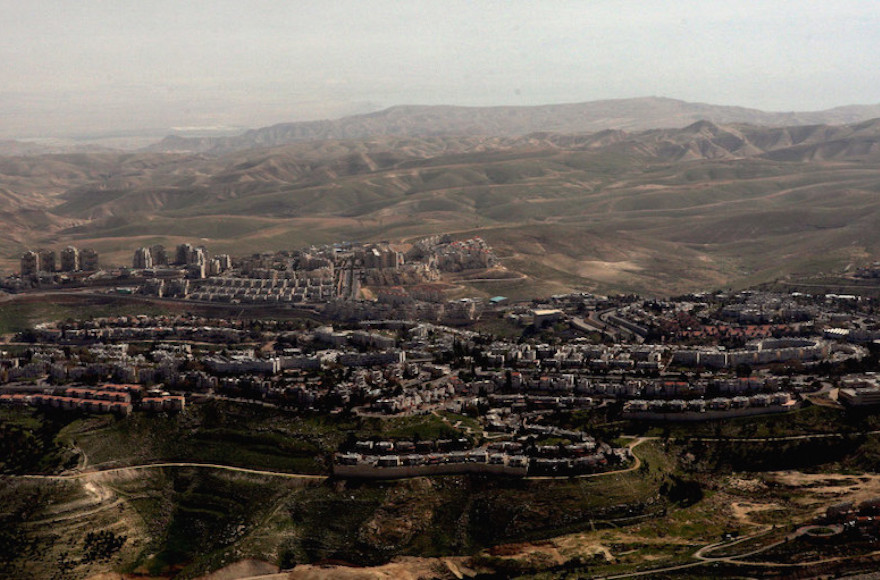JERUSALEM (JTA) — A controversial bill that would help legalize West Bank outposts built on Palestinian land was approved in its first reading in the Knesset.
The Regulation Bill was approved late Wednesday following a five-hour floor debate by a vote of 58-51. Two more readings are required to enact the measure.
Benny Begin of the Likud party was the only member of the coalition to vote against the bill. He was suspended from his membership in the high-profile Knesset Constitution, Law and Justice Committee after he voted earlier in the week against the preliminary version.
Earlier in the week, a section of the bill that would have allowed the government to act against a Supreme Court ruling to raze the Amona outpost by Dec. 25 was cut from the bill, which would recognize other settlements found to be built on private Palestinian land.
The bill would allow the Israeli government to recognize construction built with government assistance and in good faith — meaning those outposts whose builders were not aware they were constructing on private land. If the original owners of the land are known, they would be eligible to receive financial compensation from the government.
According to the settlement watchdog group Peace Now, the bill could legalize 55 outposts and 4,000 housing units in the West Bank.
Israel’s Attorney General Avichai Mandelblit maintains that the bill is in violation of local and international law and has said the Supreme Court would likely void it.
Meanwhile, the government is working to formulate new plans to house the 40 families who will be evacuated from the Amona outpost. The plans call for half the families to be relocated into temporary caravans in the nearby settlement of Ofra and the other half to live in a school building in the settlement.
A new settlement has been ordered to be built eventually near Shvut Rachel in the Binyamin region. Amona residents say they will resist evacuation.
Mandelblit rejected the initial plans to move the residents to land nearby classified as abandoned by its Palestinian owners.
JTA has documented Jewish history in real-time for over a century. Keep our journalism strong by joining us in supporting independent, award-winning reporting.






